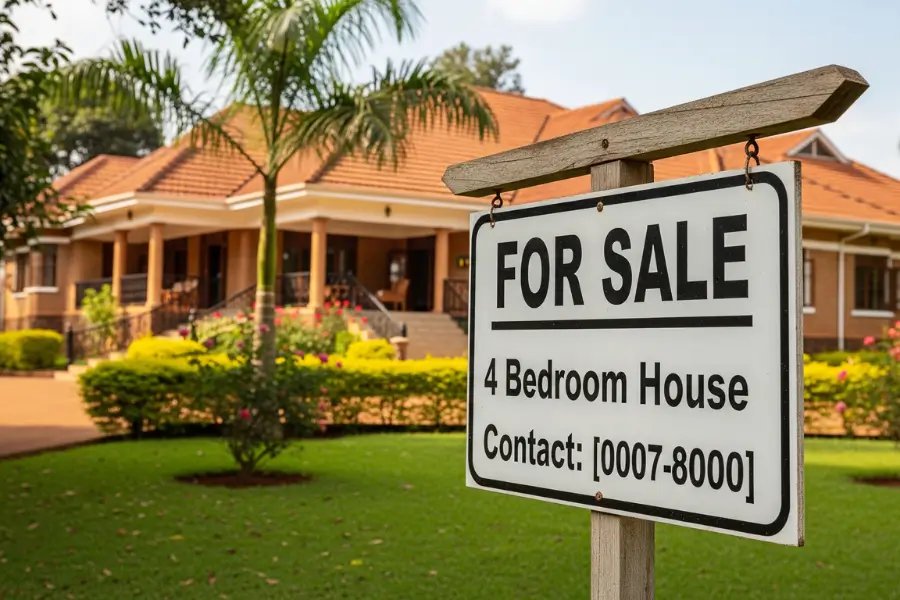Buying property in Uganda is an exciting step, whether you’re getting your first home, expanding your investments, or developing land for business. But with the opportunities in the real estate market also come risks, from fake land titles to double sales and unclear ownership. That’s why to ensure a secure property purchase in Uganda isn’t just important; it’s essential.
In this guide, we’ll walk you through the practical steps, real examples, and legal requirements to buy property in Uganda with confidence.
1. Start with Due Diligence
Before you fall in love with that bungalow in Kira or that plot in Muyenga, do your homework.
a) Visit the Property in Person
Never rely solely on photos or descriptions. Physically inspect the property to confirm the boundaries, access roads, and surrounding developments. Engage a surveyor to cross-check the land’s dimensions and location on the ground.
b) Verify the Land Title
If you’re buying titled property, carry out a land search at the Ministry of Lands or the relevant zonal office. This search will confirm:
The registered owner’s name.
The size and location of the property.
- The land tenure system (Mailo, Freehold, Leasehold, or Customary).
Any encumbrances like mortgages, caveats, or disputes.
c) Verify the seller’s identification documents
make sure they are original and truly belong to the seller. There have been cases in where conmen used forged National IDs, passports, and driving permits. Confirm National ID details with the National Identification and Registration Authority (NIRA) to ensure the name, photo, and personal details match exactly.
d) Buying from a Kibanja Holder
If you’re purchasing property from a Kibanja holder (a bona-fide occupant without a freehold or mailo title), the seller must have a valid agreement proving their occupancy rights.
📌 Read our full guide here: How to Buy a Property from a Kibanja Holder in Uganda.
e) Consult neighbours and the LC1 about the property’s history and any disputes if known.
📌 Example: A client almost bought a prime plot in Entebbe, only to find out it had been mortgaged to a bank. A simple land search saved them millions.
2. Engage Professional Help
Don’t go it alone, hire a qualified lawyer, a reputable agent and a surveyor.
- Avoid “a friend of a friend” deals. Always work with registered real estate agents, property consultants, or developers who understand the law. Licensed agents often have access to legitimate listings.
Engage a licensed surveyor to confirm boundaries and size of the land, as mandated under the Survey Act.
Get a Competent Lawyer – your first line of defence against property fraud.
Your lawyer should review the sale agreement, confirm the legitimacy of the seller’s documents, and guide you through the transfer and registration process.
Legal Reference: According to the Land Act Cap 227, all land transactions must follow formal documentation and registration for ownership transfer to be valid.
3. Ensure All Beneficiaries Consent
When buying family property, all beneficiaries must give their consent. For example, even if a family home is registered in the husband’s name, the wife and adult children (above 18) should also sign the sale agreement. This prevents disputes where a spouse or child later claims the property was sold without their knowledge.
4. Get a Clear and Detailed Sale Agreement
A sale agreement should not be vague, it must clearly state what you are buying and under what conditions.
Confirm in writing what is included in the purchase. For example, there was a case where a buyer purchased land with a small house and mature trees, but on returning after payment, the house and trees were gone. The seller claimed they had only sold “bare land.”
The agreement should also include:
Buyer and seller’s full names, IDs, and signatures
Block number, Plot number, size, and location details
Price and payment terms
Possession date
Witness signatures
- Conditions for transfer.
5. Record Evidence During the Process
In Uganda’s property market, photos, videos, and audio recordings can be your best insurance policy.
During property visits, negotiations, or payment sessions:
Take clear photos of the property, the seller, and any documents shown.
Record short videos capturing the discussions and agreements.
Save voice notes of important conversations.
These are extremely hard to fake or deny in case of disputes.
📌 Example: A young man named James Kibuka once bought land in Mpigi. After paying the full amount, the seller tried to deny ever selling him the land. Luckily, James had recorded a video during the transaction where the seller was seen counting the cash, signing documents, and confirming the sale on camera. This video became irrefutable evidence in court, and saved him millions.
💡 Tip: Some sellers might feel uncomfortable with cameras, but ask yourself why would a genuine seller fear a camera? If you suspect resistance, discreetly record for your own protection.
6. Pay Using Traceable Methods
Avoid cash handovers. Instead:
Use bank transfers or cheques or mobile money.
Keep receipts and payment records.
💡 Tip: If paying in instalments, ensure each payment is acknowledged in writing by the seller.
7. Take Immediate Possession
The moment payment is made, take possession right away. The longer a property sits unoccupied after purchase, the more room there is for trouble.
In Uganda, some sellers have been known to sell the same property to multiple buyers, especially if it has been on the market for a while.
8. Transfer & Register Ownership Immediately
Once you’ve paid in full:
Submit transfer forms to the Ministry of Lands.
Pay the stamp duty (usually 1.5-2% of the property’s value).
Obtain a new title deed in your name.
Delaying this step leaves you vulnerable to fraud.
9. Consider Extra Security Measures
For high-value properties, you can:
Keep copies of all documents in both digital and physical form.
Have multiple witnesses, preferably respected community members.
Involve the LC1 chairperson during the transaction and introduce yourself officially as a new owner.
Place a caveat on your land (to prevent unauthorised sales).
Take title insurance from a trusted provider.
Final Word
Buying property in Uganda is safe if you follow the right steps. By doing thorough due diligence, involving professionals, following the law, and keeping records, you can protect your investment and enjoy peace of mind.
💡 Explore More: Browse verified properties for sale in Uganda to start your secure buying journey today.
Frequently Asked Questions
Secure Property Purchase in Uganda
The safest way is to verify the land title at the Ministry of Lands, hire a trusted lawyer, and make all payments through traceable channels.
Visit the Ministry of Lands or use their online system (if available) to cross-check ownership details against the seller’s information.
Check the land registry for encumbrances, ask local authorities, and talk to neighbours to ensure there are no conflicts.
You’ll need the land title, sales agreement, receipts of payment, and signed transfer forms. Your lawyer will guide you on others.
Yes. A lawyer helps review agreements, confirm the land title, and protect you from fraud before signing or paying.
Foreigners can lease land for up to 99 years, but cannot own freehold or mailo titles. Most buy leasehold or condominium properties.
Yes, but the seller must provide a written sale agreement. Buyers should also read this detailed guide 👉 How to Buy a Property from a Kibanja Holder to avoid disputes.
Expect stamp duty (1.5% of property value), legal fees, survey costs, and sometimes local council dues.
Often yes, but you should still verify their registration, track record, and ensure titles are clear.
Confirm land ownership, ensure there are no encumbrances, agree on payment terms, and let your lawyer review the contract.






Join The Discussion